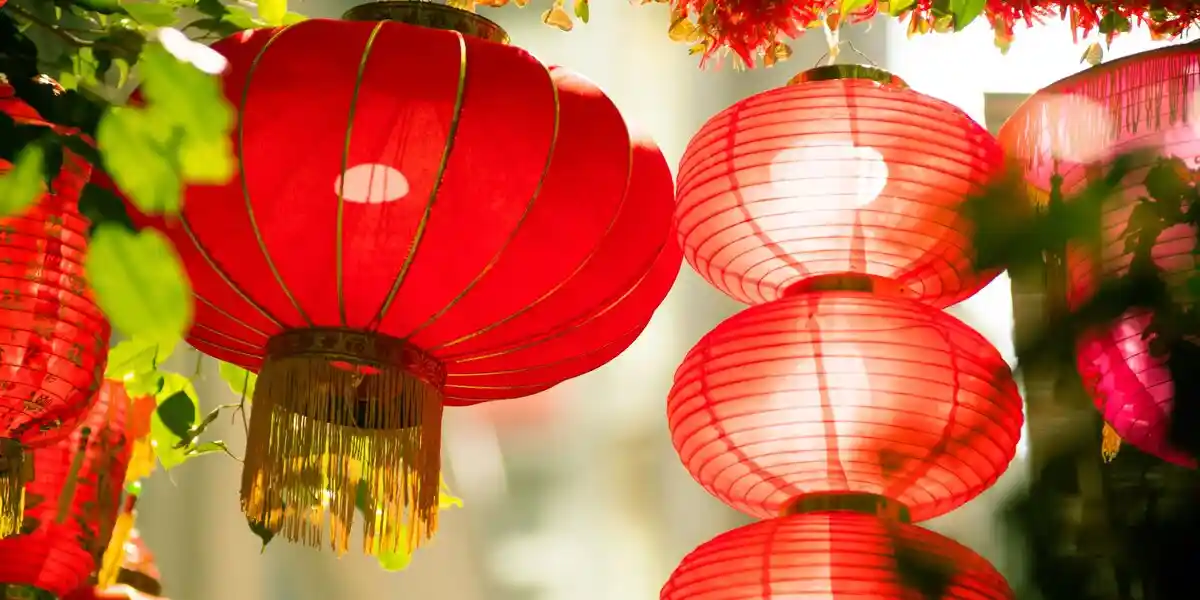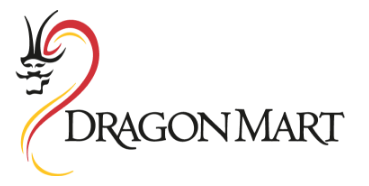Chinese Festivals

China, a country with a history stretching over five millennia, is a treasure trove of rich traditions and cultural practices. Among these, the traditional Chinese festivals stand out as vibrant expressions of the country's heritage and spirit. These festivals, steeped in mythology, folklore, and communal harmony, offer a fascinating glimpse into the heart of Chinese culture.
An Overview of Chinese Festivals
One of the most exciting aspects of these Chinese festivals is the food. Each festival is associated with specific dishes that are not only delicious but also carry symbolic meanings. For instance, mooncakes are shared among family members during the Mid-Autumn Festival, symbolising unity and togetherness. Similarly, zongzi, sticky rice dumplings wrapped in bamboo leaves during the Dragon Boat Festival, are a must-have delicacy.
Another captivating element of these festivals is the traditional Chinese festival costumes. From the colourful silk robes worn during the Lantern Festival to the intricate dragon costumes seen in the Dragon Boat Festival, these outfits add charm and excitement to the celebrations.
A Journey Through Lesser-Known Festivals
While some festivals may not be as globally recognised as the Chinese New Year or the Mid-Autumn Festival, they offer a unique insight into the country's rich cultural tapestry. As we journey through these lesser-known but equally enchanting traditional Chinese festivals, we discover a vibrant world of celebration and tradition.
Qixi Festival
Often referred to as the Chinese Valentine's Day, this festival celebrates a legendary love story between a weaver girl and a cowherd. The Qixi Festival is celebrated on the seventh day of the seventh lunar month. Qiao Guo, a fried thin pastry, is the traditional food of this festival, and brightly coloured silk dresses often serve as the festival costume, reflecting the romantic nature of the celebration.
Double Ninth Festival
Respect and honour for the elderly are the hallmarks of the Double Ninth Festival or Chongyang Festival. Celebrated on the ninth day of the ninth lunar month, activities include climbing mountains, appreciating chrysanthemums, and eating special Chongyang cakes. Traditional Chinese festival costumes for this day often incorporate chrysanthemum motifs, symbolising longevity and good health.
Laba Festival
Considered a prelude to the Chinese New Year, the Laba Festival is celebrated on the eighth day of the twelfth lunar month. The most significant tradition of this festival is eating Laba porridge, a rich and hearty dish made with various grains and dried fruits. While the celebration doesn't have specific costumes, people often wear warm, festive clothing.
Ghost Festival
During the Ghost Festival, also known as the Hungry Ghost Festival, it's believed that the gates of hell open, allowing ghosts to visit the living world. This traditional Buddhist and Taoist festival sees people offering food and burning joss paper to appease the visiting spirits. While no specific Chinese festival costume is associated with this festival, people often wear sombre colours to show respect for the spirits.
Lantern Festival
The end of Chinese New Year celebrations is marked by the Lantern Festival, celebrated on the 15th day of the first lunar month. It's a night of beautiful lantern displays, riddle-solving games, and lion dances. The festival is also associated with Yuanxiao, sweet dumplings made of glutinous rice flour filled with various fillings. The round shape of the dumplings symbolise family unity and completeness.
Dragon Boat Festival
Known for its dragon boat races where teams paddle in rhythm to a drum beat, the Dragon Boat Festival, or Duanwu Festival, is celebrated on the 5th day of the 5th lunar month. Zongzi, sticky rice dumplings wrapped in bamboo leaves, are the traditional food of this festival. The festival costumes often include silk robes with dragon motifs.
Tomb-Sweeping Festival
Paying respect to ancestors is the central theme of the Tomb-Sweeping Festival, also known as the Qingming Festival. Celebrated on the 4th or 5th of April each year, families visit the graves of their ancestors to clean the tombstones, pray, and make ritual offerings. Traditional foods associated with this festival include qingtuan, a green dumpling made of glutinous rice and Chinese mugwort or barley grass. While no specific costumes are related to this festival, wearing sombre and respectful attire is customary.
Embracing the Spirit of Chinese Festivals
Whether planning to celebrate the Qixi Festival or just want to cook a traditional Chinese dish, each festival is a doorway into the vast and vibrant world of Chinese culture, offering a unique experience beyond the ordinary.
These are just a few examples of the many traditional Chinese festivals celebrated yearly. Each festival, with its unique customs, food, and costumes, adds to the rich tapestry of Chinese culture. If you're interested in exploring these traditions further, Dragon Mart offers a wide range of products that bring a touch of China right to your doorstep.
The next time you bite into a mooncake or watch a dragon dance, remember that you're partaking in a tradition that has been celebrated for thousands of years. Embrace the spirit of Chinese festivals, and you'll find yourself on a colourful journey through a culture that's as rich as it is diverse.
